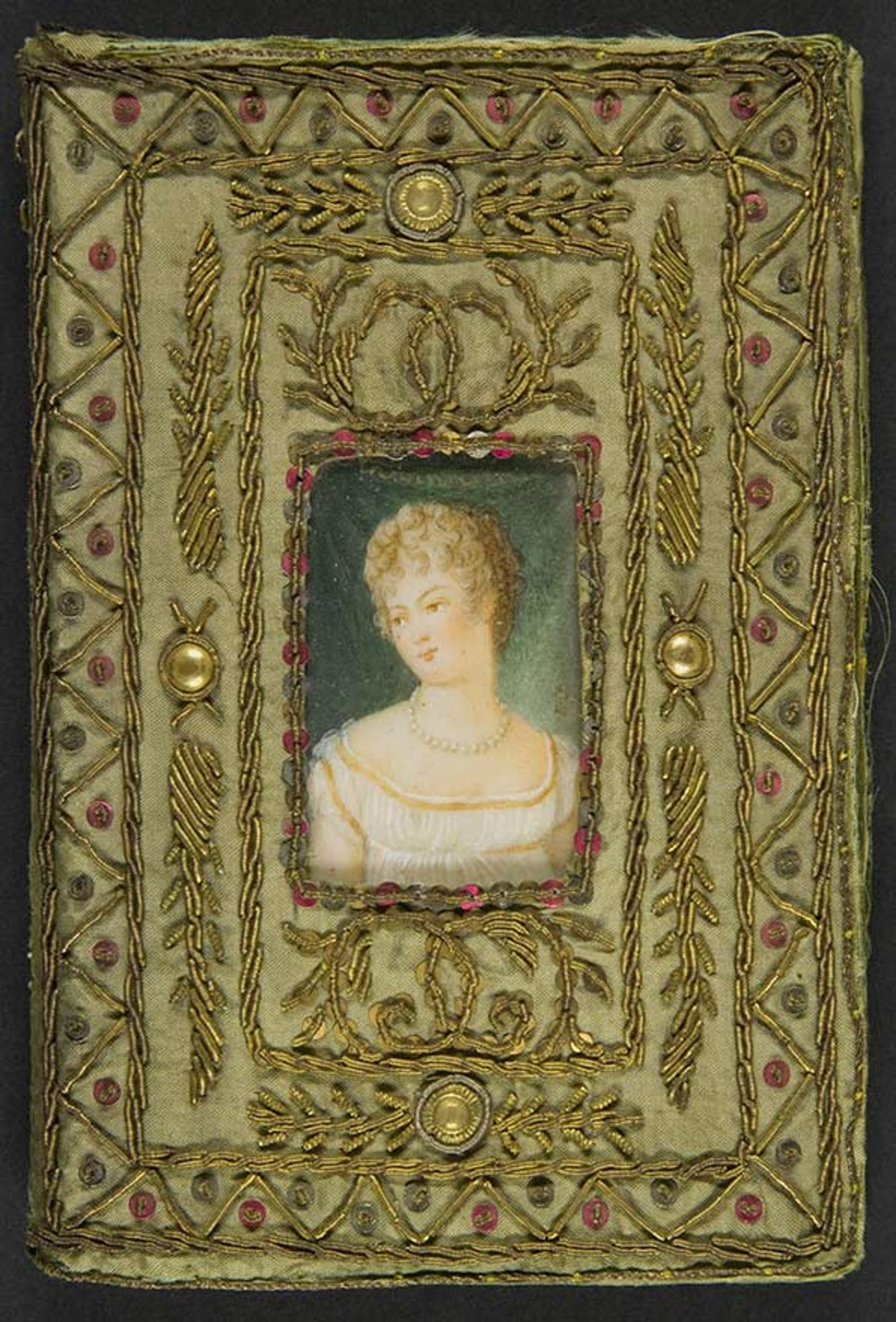
Front cover of L'Ami des Voyageurs, ou, Etrennes instructives, curieuses et nécessaires à toutes les personnes qui voyagent, soit à pied, à cheval, en voiture, ou par eau; soit par les voitures publiques, etc. etc. Paris: Chez Marcilly, ca. 1820
«This delightful travel book, entitled L'Ami des Voyageurs, was donated by Jayne Wrightsman in 2009 and is part of the Wrightsman Fine Bindings collection. Published in Paris around 1820, the book's binding is embroidered in green silk, embellished with gold thread and silver, pink, and gold spangles. The front cover (above) and back cover (below) each feature a painted portrait of a woman under mica.»
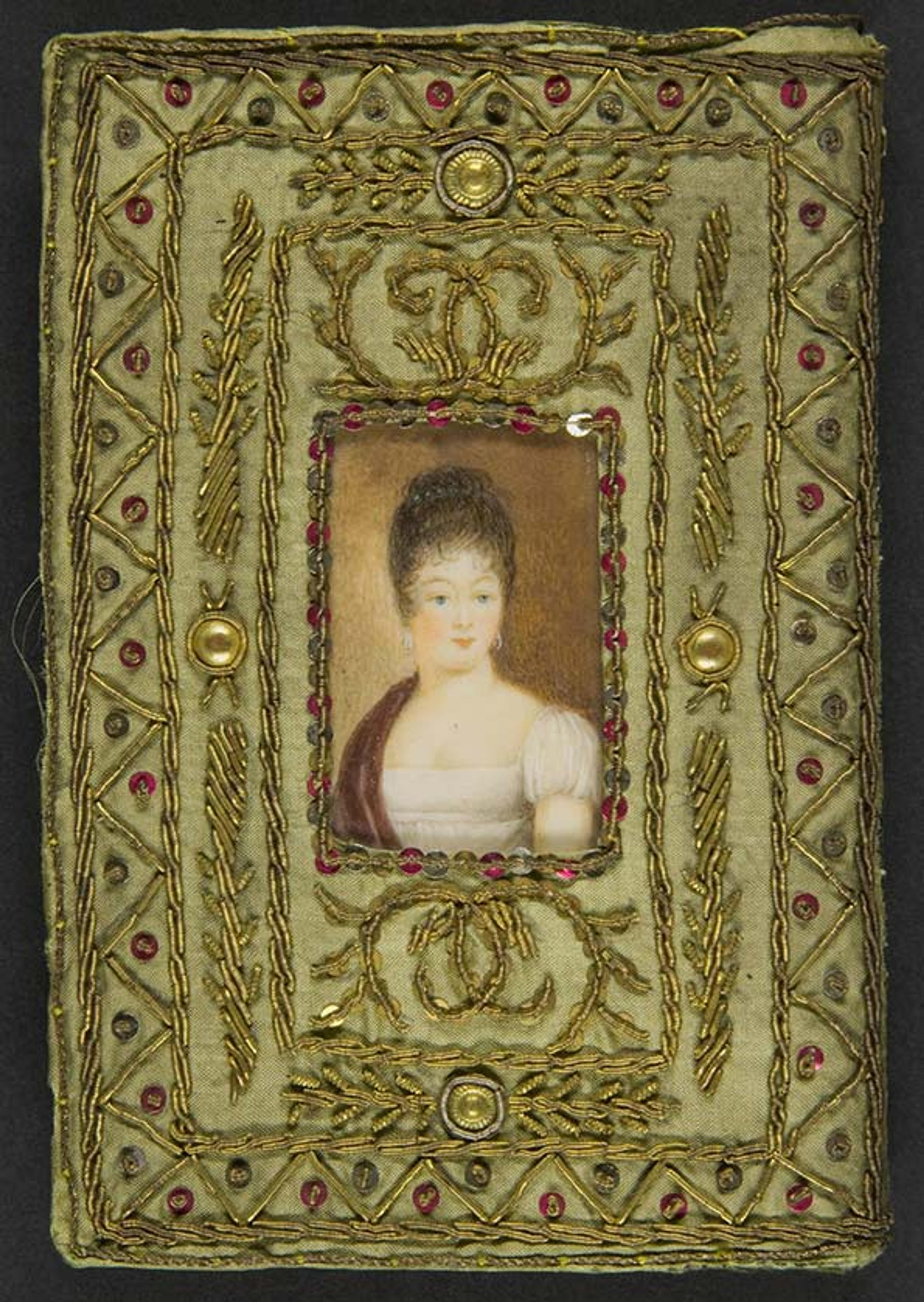
Back cover of L'Ami des Voyageurs
Designed to be convenient for the intrepid traveler, this book is exceptionally small at only sixty-eight pages in length and twelve centimeters in height. Further conveniences include a mirror inside the front cover and a small folding pocket for calling cards inside the back cover.
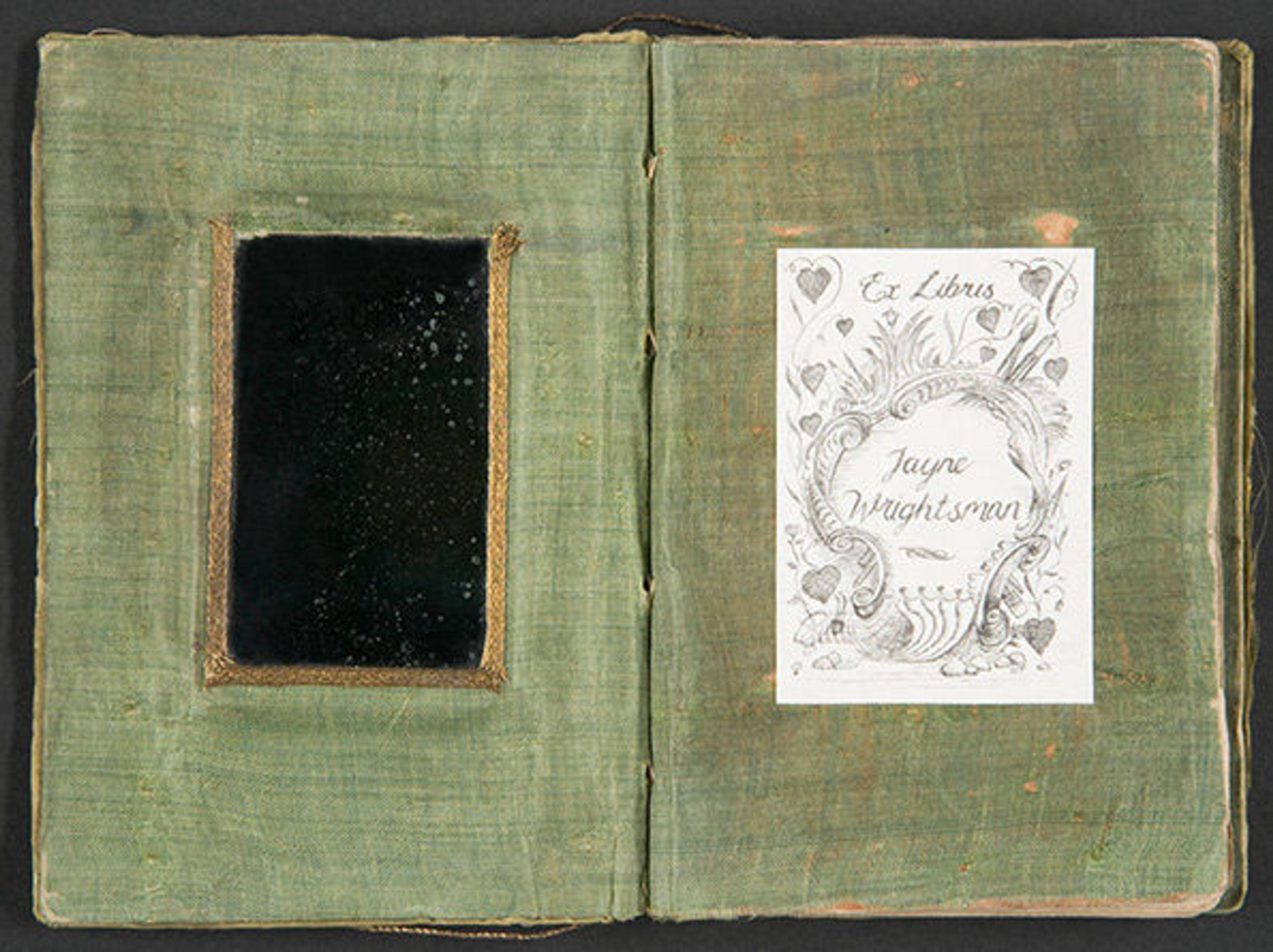
Inside front cover with mirror
Inside back cover with pocket for calling cards
This guidebook—or as the French title describes, "traveler's friend"—was designed to provide instructive tips, both practical and recreational, to all who traveled for leisure in the early nineteenth century by any means of transportation, including by foot, by horse, by public coach or private carriage, or by water. In the book's preface, the editor remarks upon the large number of contemporary travelers, and the need for a publication that would act as a memory aid or vade mecum for the avid traveler. L'Ami des Voyageurs seeks to fill this need through its efficient arrangement of information and its inclusion of useful travel checklists.
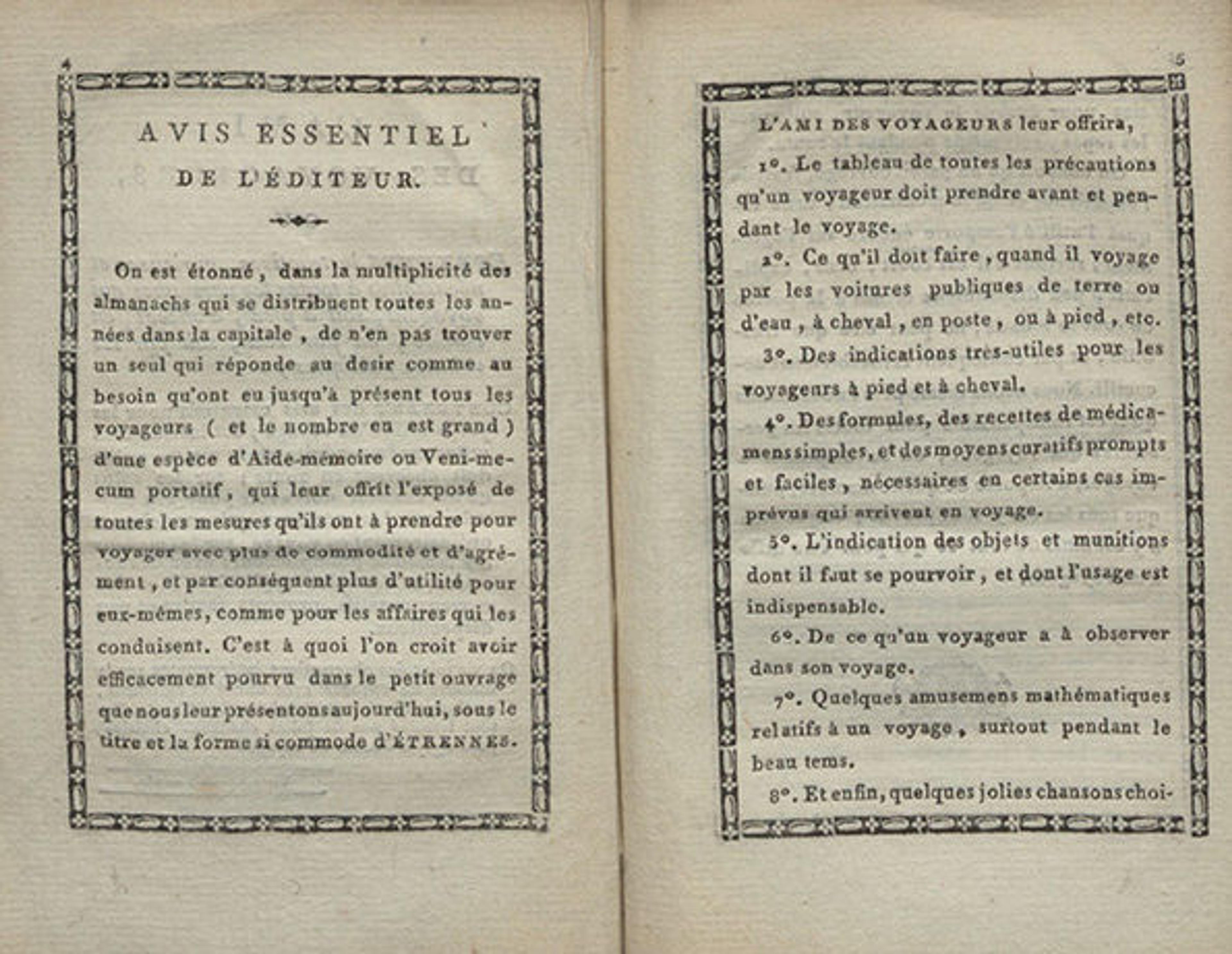
Editor's recommendations
The guidebook includes various precautions a traveler should take prior to embarking on a journey. For instance, it is recommended that travelers by public coach should reserve an advance seat at the back of the coach, where they will be more comfortably seated than by the coach doors. A back seat has the further advantage of providing shelter from the winter cold and wind, as well as relief from the intensity of the summer sun.
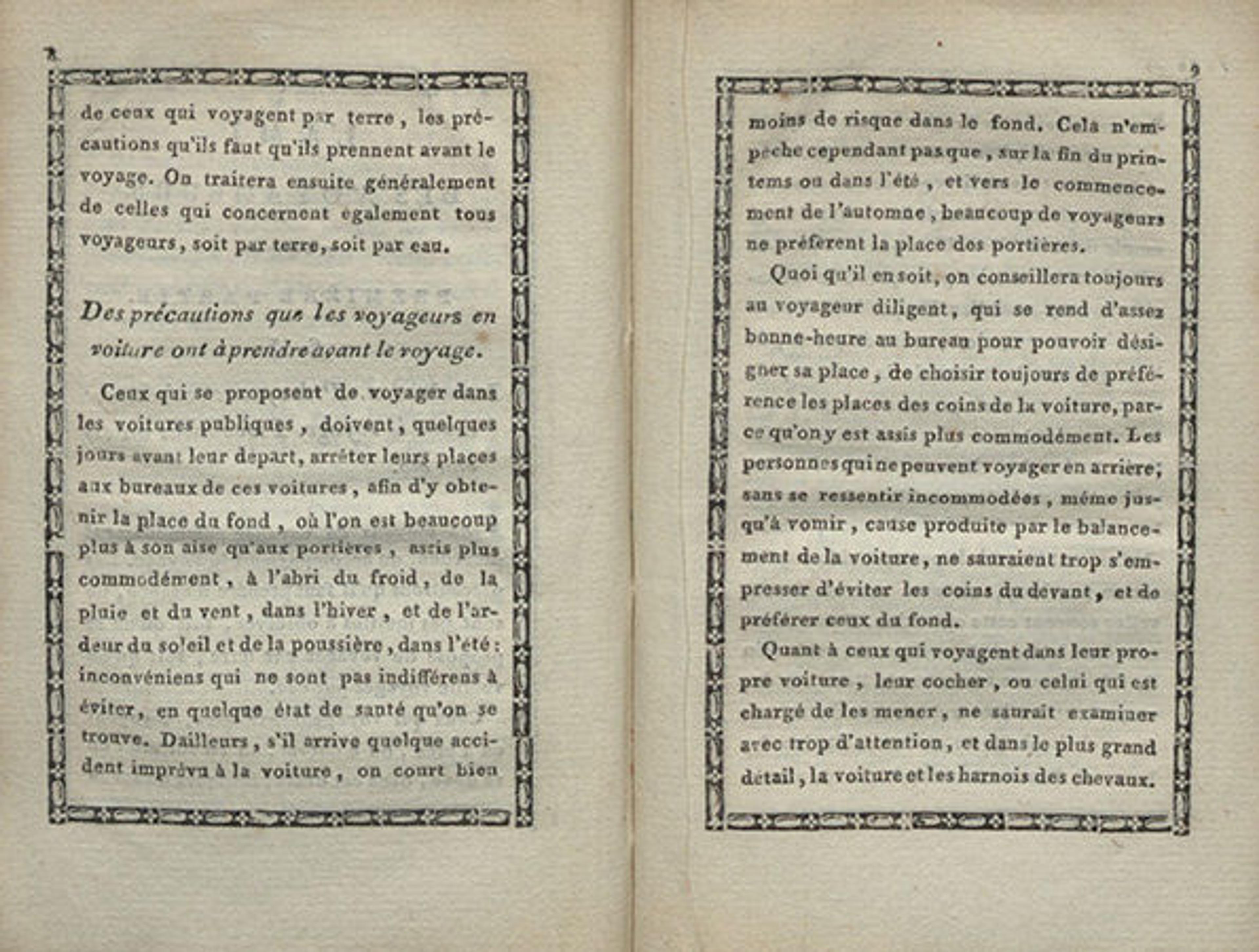
Precautions to take if traveling by coach
For those traveling by horse, sage advice is given on how to select one's equine companion. Pedestrian travelers, on the other hand, are instructed on how to dress comfortably so as to have nothing impede their ambulatory journey. For instance, anything that restricts movement, such as incommodious shoes or garters above the knee, are strongly counseled against.
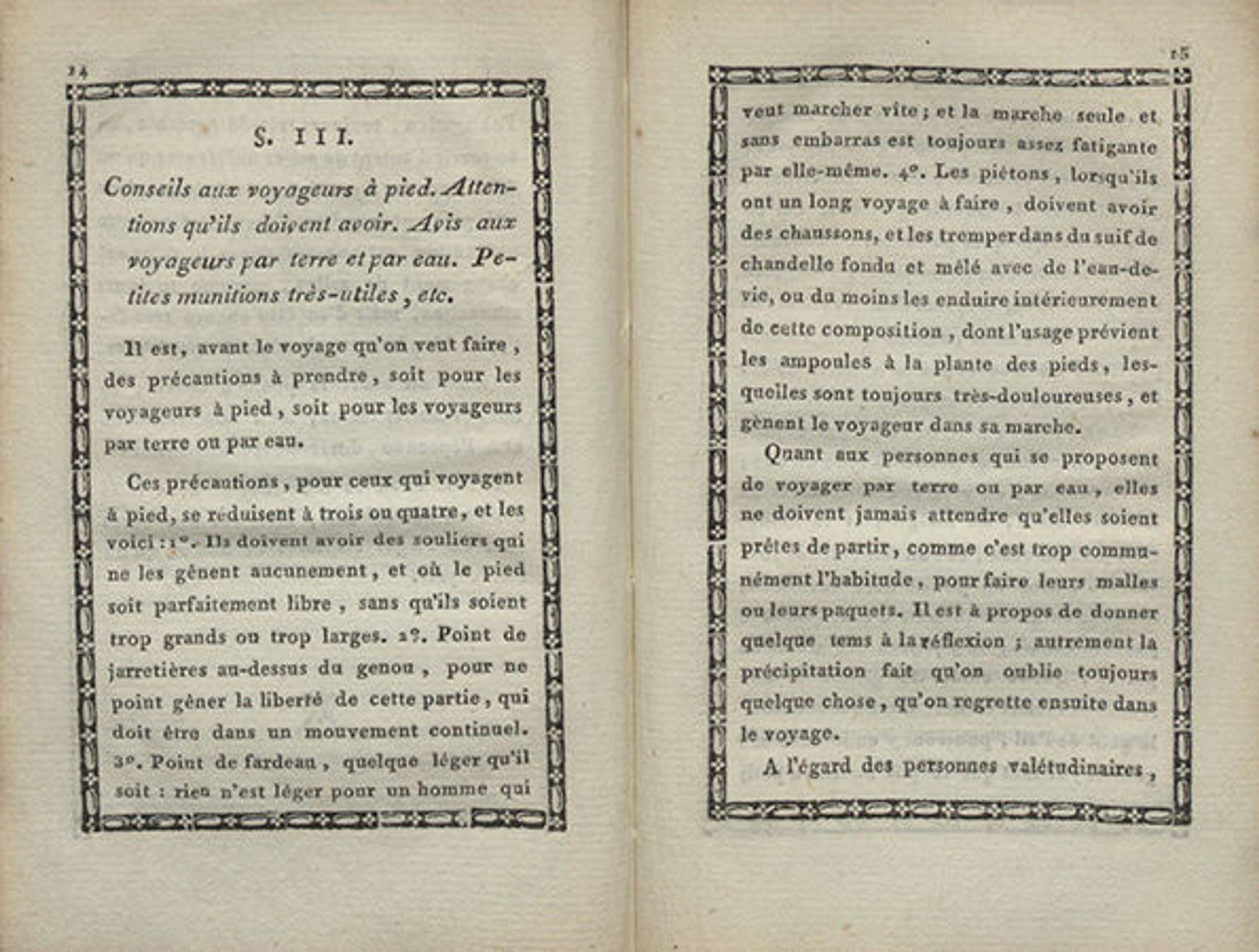
Precautions to take if traveling by foot
L'Ami des Voyageurs also contains advice on what precautions one should take during a journey. This includes tips for avoiding fatigue and even a recipe for making bouillon cubes, should one be taken ill and not be able to find any at one's inn. Of note, in what concerns travel by coach, is the directive to never get out of a vehicle while it is on or in motion. The guidebook also recommends carrying a pair of binoculars and describes several games and intellectual exercises to help a traveler pass the time—including how to calculate the age of the moon, how to orient oneself with and without a compass, and how to predict weather patterns.
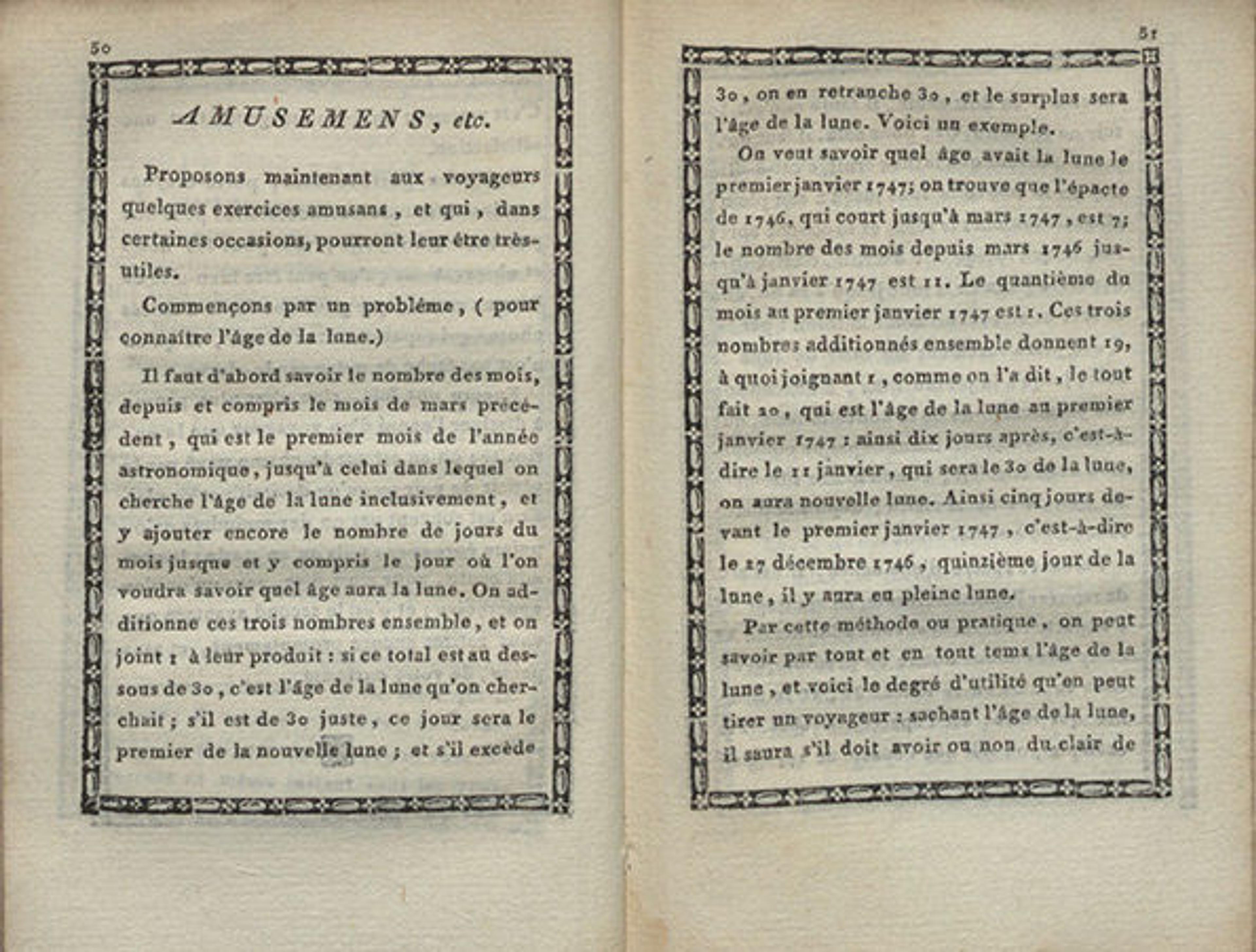
How to calculate the age of the moon
As an additional antidote to any potential boredom the traveler might experience, the book ends with a collection of song lyrics and tunes by which to sing them.
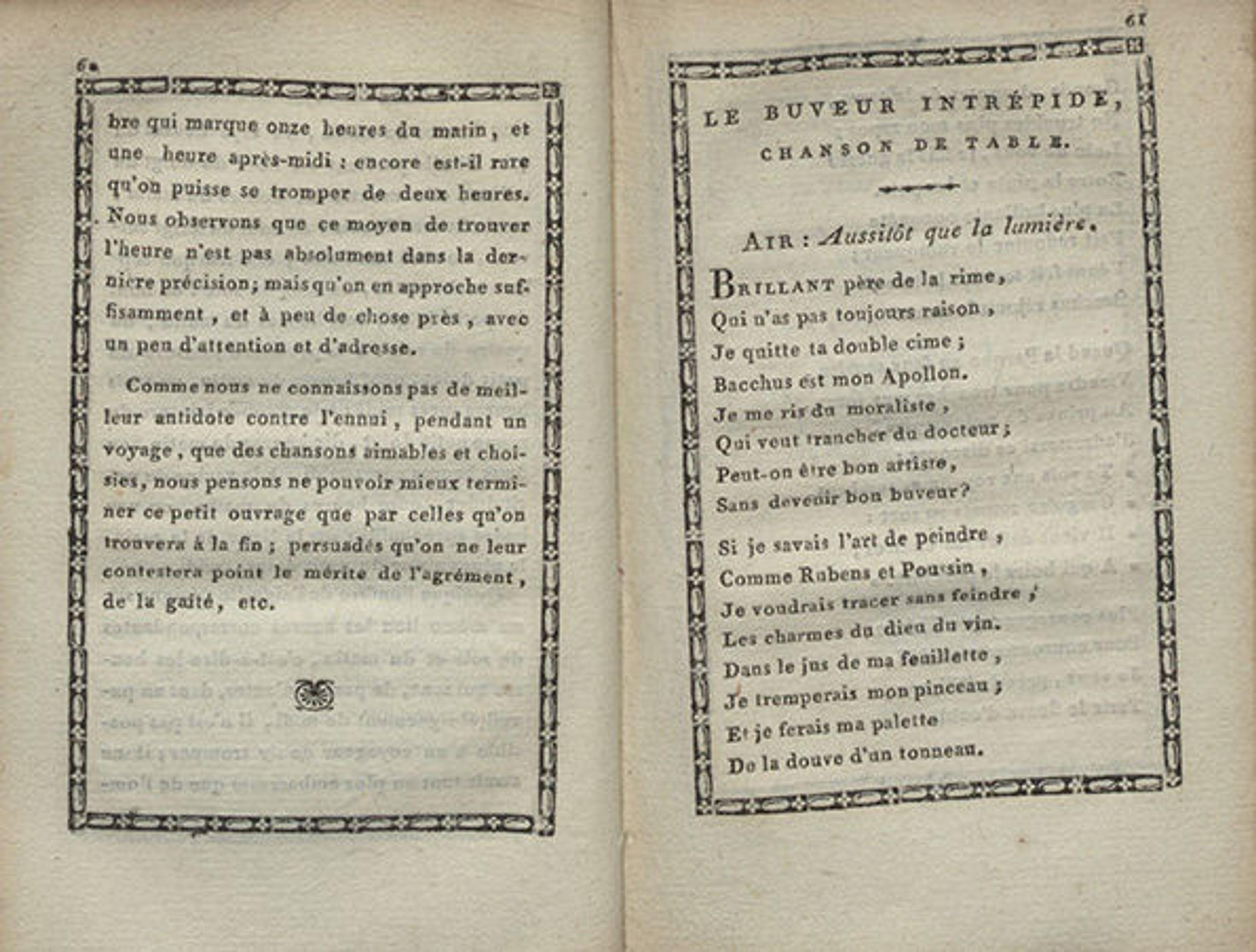
"Le Buveur Intrépide, Chanson de Table"; "Air: Aussitôt que la Lumière" (The Intrepid Drinker), a drinking song to be sung to the tune of "As Soon As the Light"
Perhaps what is most striking when reading L'Ami des Voyageurs is its celebration of the sheer joy of travel and discovery. The following passage is particularly moving: "There are few places which do not offer something worthy of observation; even the most frightful deserts have their beauty" (p. 45). The guidebook delineates what one should notice and appreciate when traveling, including landscape, art and architecture, and flora and fauna. The reader is faced with the rhetorical question of whether there is, in fact, any place where something interesting to see cannot be found. According to L'Ami des Voyageurs, a traveler's sense of curiosity will automatically pave the way for an interesting journey. Indeed, the Latin quote on the bottom of the book's third page could be interpreted as suggesting that the taste and curiosity for travel only increases the more one travels. The phrase is "Vires acquirit eundo," taken from Virgil's Aeneid, and can be loosely translated in the context of the guidebook's theme as "One gathers strength as one goes."
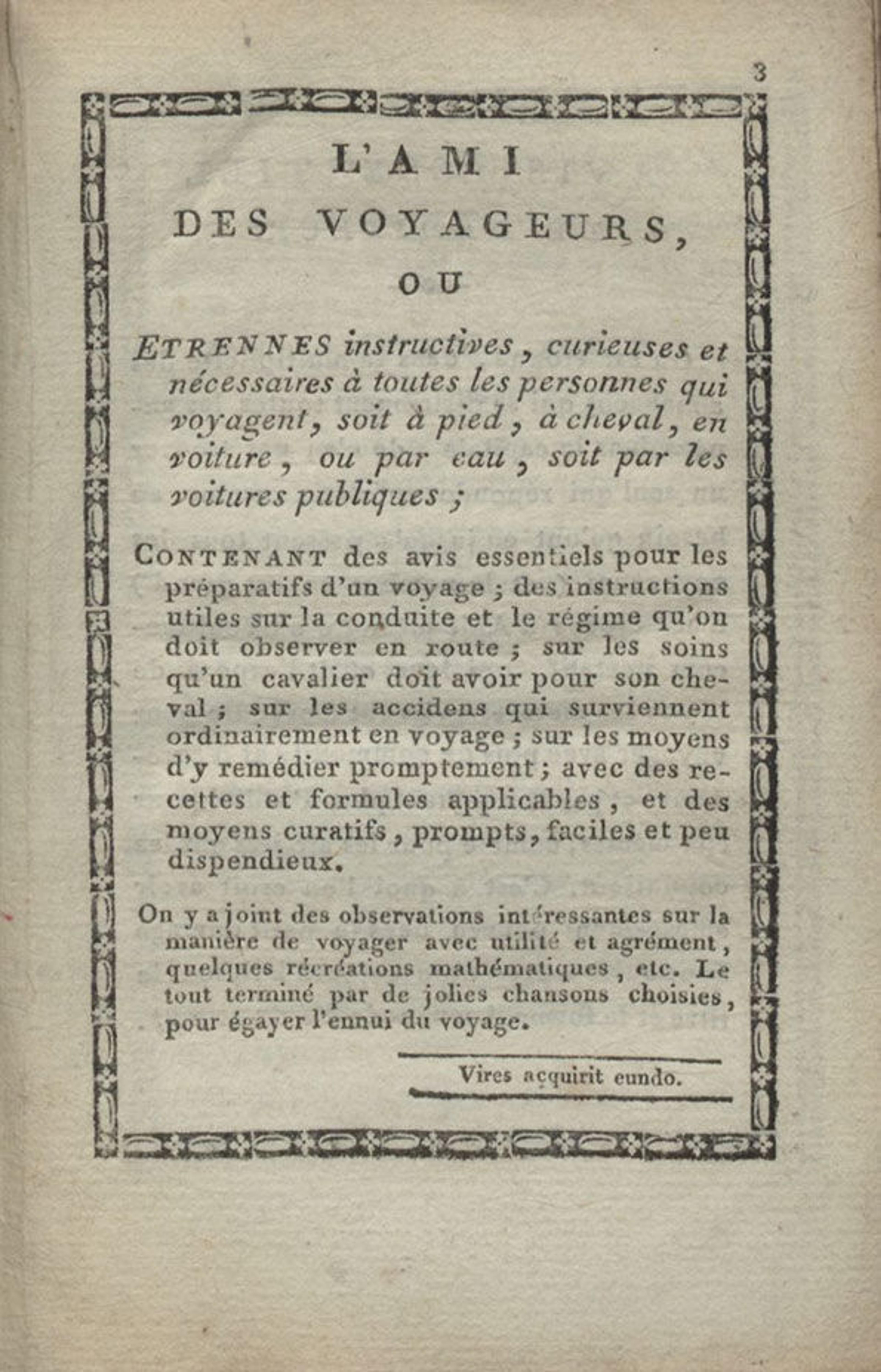
Latin quote "Vires acquirit eundo" from page three, shown at bottom right
While L'Ami des Voyageurs does not provide a ready list of hotel and restaurant recommendations, its infectious spirit of adventure and exploration still makes it a pleasurable and entertaining read for travelers today.
Thanks to Tamara Fultz, librarian in the Thomas J. Watson Library, for her assistance in translating the Latin text.